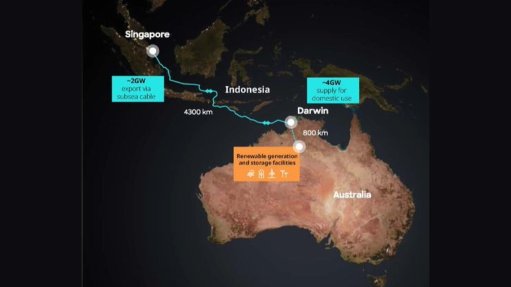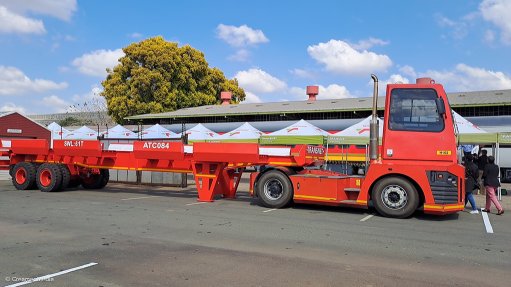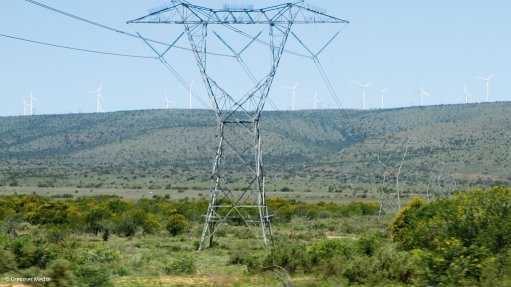Insuring your off-grid assets
This article has been supplied.
With the ever-present threat of last-minute load shedding, more South Africans are turning to various ‘off-grid’ solutions to limit the disruption to daily life. Major retailers have reported spikes in generator and inverter sales, while solar companies have been busier than ever with installations as people look to keep their homes running during power shortages.
However, as many rush to install solutions, they might not have thought about the impact it can have on their home or household contents insurance cover.
So, when it comes to protecting your home from the impact of load shedding, the first thing you should do is review your insurance policy to ensure that your off-grid assets are covered.
Generators:
If you are going to install a generator, will it be covered or is it an exclusion in your current policy?
Damage to your home as result of a fire caused by an incorrectly installed generator will most likely not be covered by your insurance. It is every homeowner’s responsibility to ensure that their generator is installed correctly, and they must advise their insurance provider that they have done so.
“We cover generators installed as permanent fixtures for domestic use under building cover,” says Shakeel Ebrahim at Standard Bank Insurance. “The generator must be in a secure place and not left unprotected outside. You may also keep the following fuel at your home: diesel (up to 210 litres), and petrol (up to 40 litres). We do not cover mechanical or electrical breakdown, wear and tear, goods under guarantee, or claims because of spilled fuel.” If a generator is not a fixed or permanent fixture, cover for the generator is available under home contents insurance.
Gas:
If you plan to install gas in your home for cooking or lighting, there are certain precautions you must follow to make sure your insurance claim is not repudiated in the event of an accident. There are limits around how much gas you can store inside and outside your home. There are also several regulations governing the installation of gas appliances and bottles in South Africa. Additionally, gas installations must be accompanied by a certificate of conformity.
It’s critical to follow the regulations when dealing with gas in your home. The best way to ensure you are compliant is to always use a registered gas installer, and to have a registered installer regularly service your gas appliances. To find a registered installer, visit the SAQCC Gas website.
Solar:
Installing a solar or a grid-tied battery powered system will go a long way in protecting your home and is becoming a popular choice amongst South Africans. Criminals are less likely to strike a home that is well lit on a dark street. Make sure you obtain an Electrical Certificate of Compliance for your Solar Installation as your insurer may require this.
Says Ebrahim; “Your home is one of your biggest investments and making sure it is protected is something you should take very seriously. It’s critical that the generator or solar system is connected safely and legally. No one wants to think about the negative things that could happen, but the reality is that, if you want to protect your asset, you must arm yourself with the right information and put in place the necessary precautions. In terms of load shedding, that means not being in the dark about insurance.”
While it’s important to make sure off-grid assets are appropriately insured, there are also ways to limit or prevent damage caused by power cuts and surges experienced during load shedding. Surge protectors can be used for electric mains boards, while surge adaptors help protect plug points. A UPS (uninterruptible power supply) helps to protect your internet or fibre connections, as well as electronics like modems and routers. And a surge protecting power strip features a fuse designed to fail if a voltage spike occurs. Otherwise, remember to disconnect devices and appliances not in use, and avoid overloading power outlets. When it comes to finding solutions to dealing with load shedding, every little bit helps.
Comments
Press Office
Announcements
What's On
Subscribe to improve your user experience...
Option 1 (equivalent of R125 a month):
Receive a weekly copy of Creamer Media's Engineering News & Mining Weekly magazine
(print copy for those in South Africa and e-magazine for those outside of South Africa)
Receive daily email newsletters
Access to full search results
Access archive of magazine back copies
Access to Projects in Progress
Access to ONE Research Report of your choice in PDF format
Option 2 (equivalent of R375 a month):
All benefits from Option 1
PLUS
Access to Creamer Media's Research Channel Africa for ALL Research Reports, in PDF format, on various industrial and mining sectors
including Electricity; Water; Energy Transition; Hydrogen; Roads, Rail and Ports; Coal; Gold; Platinum; Battery Metals; etc.
Already a subscriber?
Forgotten your password?
Receive weekly copy of Creamer Media's Engineering News & Mining Weekly magazine (print copy for those in South Africa and e-magazine for those outside of South Africa)
➕
Recieve daily email newsletters
➕
Access to full search results
➕
Access archive of magazine back copies
➕
Access to Projects in Progress
➕
Access to ONE Research Report of your choice in PDF format
RESEARCH CHANNEL AFRICA
R4500 (equivalent of R375 a month)
SUBSCRIBEAll benefits from Option 1
➕
Access to Creamer Media's Research Channel Africa for ALL Research Reports on various industrial and mining sectors, in PDF format, including on:
Electricity
➕
Water
➕
Energy Transition
➕
Hydrogen
➕
Roads, Rail and Ports
➕
Coal
➕
Gold
➕
Platinum
➕
Battery Metals
➕
etc.
Receive all benefits from Option 1 or Option 2 delivered to numerous people at your company
➕
Multiple User names and Passwords for simultaneous log-ins
➕
Intranet integration access to all in your organisation

















